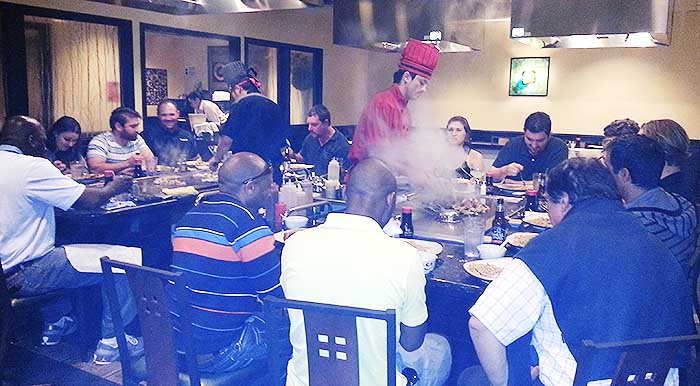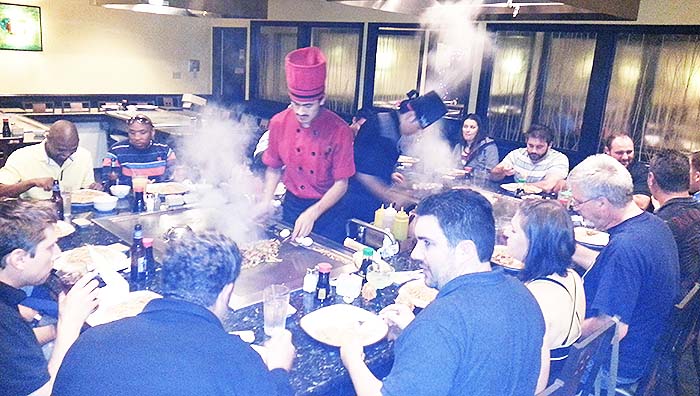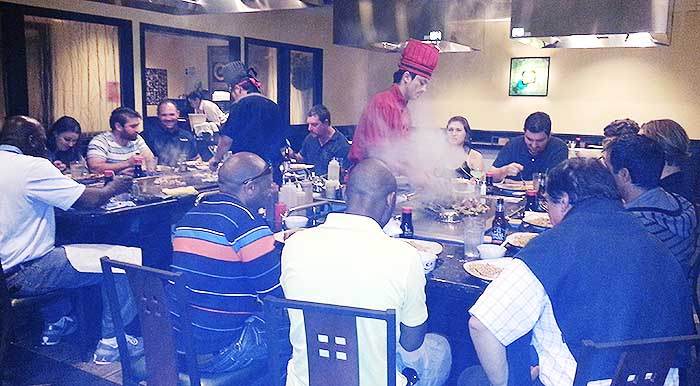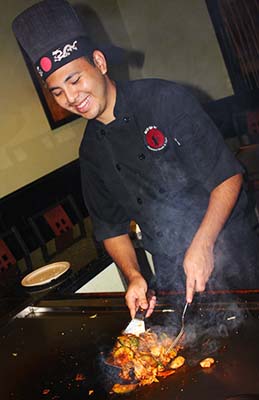About Kobe Hero and reviews
CELEBRATE BEGINNING YOUR NEW SCHOOL YEAR, BIRTHDAY, OR OTHER FAMILY OR BUSINESS EVENT!
All You Can Eat! Steak, Chicken, Shrimp, Broccoli, Mushrooms, Onions, Carrots, Peppers, Zucchini, Cabbage, Fried Rice, Noodles, Soup, Sweet Carrots, Salad and Seaweed Salad!
Sushi buffet includes 20 of our special dinner sushi rolls!
This is the same top-quality sushi we serve for dinner!
Reviews:
AshlynC732
This place used to be good. We were the only 3 at our table. No real “show”. Even my 2 year old asked where the fire was. Had to explain that not all shows are the same. My husband ordered the Karai chicken. After he...
William S
Unfortunately, we went at 8 pm. No one else at out table. After they figured that out is was fast and unsatisfactory. Messed up our drink orders, did not get my wine until half way thru dinner. Very disjointed in the chef ( entertainment) and...
tanzanite2015
We went for my sons graduation dinner very bad service waitress was not very good didnt seem to like serving us..We waited over an hour for chef to come cook .Was not very clean was dirt on the floors.Food was ok the waitress gave us...
margaritaville24
Will not be back! The drinks we ordered were wrong, the steak was over cooked, they forgot it was my daughters birthday, which is why we were there and we were over charged. You go to a place like this for the “entertainment “ of...
tylerantrican
Food was great. Chef was fun and engaging. However overall cleanliness was lacking. Everything...I mean, everything, was sticky. Floors were slippery.
LKNCHOWHOUND
When we first moved to Cornelius 20 some odd years ago, we went to Kobe many times when the kids were young adults but before they got married and moved away. Always a great time and always a good meal.Over the years, as other...
Giuseppe V
A very unpleasant experienceAlthough we had a reservation we waited 2 hr and 8 min before been seated The waiters were very sloppy the cook for the hibachi as mute as a fish Salads were served without sauce.... like eating a salad off of...
SusieJota
What a nightmare of a place! Waitress couldn’t not get the order right. The chef had no idea what we ordered and had to go find the waitress to figure it out. The chef was boring, let the grill burn and there was smoke everywhere....
JFH121
What a birthday letdown...for the parents of a 16 year-old b'day celebration. While the kids certainly enjoyed the chef lighting food on fire, little did we know it would result in a burn-you-twice experience in the making. But before further details of the meal results...
luv2travelkms
We went out for Hibachi and our chef was great. The food was delicious and the portions were huge. We had enough left over for a full meal the next day too. We had the filet, shrimp and scallops and all were great. Our waitress...














